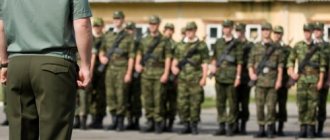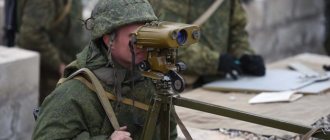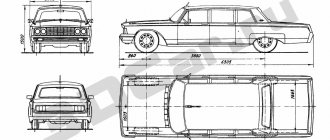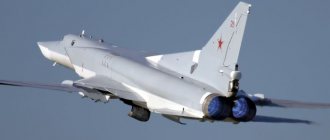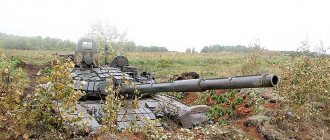02/22/2019 Category: Useful articles
- 2 General information
- 3 Duties of military personnel
- 4 Incentives for military personnel for maintaining military discipline
- 5 Responsibility for violation of military discipline
- 6 Problems of military discipline
- 7 Ways to improve military discipline
The modern Armed Forces of the Russian Federation solve a wide range of tasks to protect economic and political interests, as well as contain security threats and attacks on the interests of the state. Successful achievement of the goals of the assigned tasks is impossible without military discipline.
Definition of military discipline
In all spheres of civilized interaction between people, a certain order of accepted and permitted behavior is established that meets the norms of law and morality. Compliance with this order is discipline. This term hides a multifaceted phenomenon that extends to the activities of people within various government structures and organizations. The army is no exception.
When solving defense and military problems, the discipline acquires particular relevance and importance. Based on this, military discipline has pronounced specifics, features and nuances.
The essence of the VD is determined by the provisions of the Disciplinary Charter of the Armed Forces of the Russian Federation (hereinafter referred to as the DU of the RF Armed Forces). Paragraph 1 of Chapter 1 of this document provides a precise definition of military discipline. Military discipline (hereinafter referred to as VD) is strict and precise observance by military personnel of the order and rules established by federal constitutional laws, federal laws, general military regulations of the Armed Forces of the Russian Federation and orders of commanders (superior officials).
General information
Military discipline is the basis of any army in the world.
To understand how important military discipline is for a modern army, it is necessary to delve into the very specifics of the service. In each individual unit, discipline provisions may have specific features dictated by specific conditions.
In most armies of the world, until the 19th century, the so-called Prussian military discipline was in effect. And its main requirement was blind obedience to the commander on the part of any lower-ranking soldier. In those days, it was believed that there was no point in analyzing the situation for an ordinary soldier - a more experienced and knowledgeable command would do it for him. He is also required to strictly follow orders. The warrior acted as a kind of machine for exterminating enemy forces.
The mistake of this type of military discipline was the lack of dedication and initiative on the part of the soldiers. Therefore, over time, forced service gradually faded into the background, and at the moment the army is based on the concept of public duty or contract service.
Today, military discipline includes not only responsibilities, but also the rights of soldiers, enshrined at the legislative level. These provisions undergo certain amendments and additions from time to time, due to which the requirements for military personnel are gradually increasing. Such changes are associated with the emergence of new types of technology, as well as with the state of affairs in the international arena.
general information
In addition to the Administration of the Armed Forces of the Russian Federation, issues of discipline are given an important place in the Charter of the Internal Service of the Armed Forces of the Russian Federation (hereinafter referred to as the Internal Service). Article 16 of this document states that the status of a military serviceman obliges him to be disciplined. The importance of compliance with internal regulations is emphasized by the fact that it is placed on a par with the obligation to maintain state secrets.
The fundamentals of VD are built on two fundamental principles:
- self-discipline;
- diligence.
These principles form approaches to the implementation of VD. They can be conscious or forced. Conscious VD is compliance with the rules of behavior, due to the presence of a deep sense of patriotism, duty of honor and high internal responsibility. Forced action is an extreme measure of compliance with the required rules, as it is based on a sense of fear and benefit.
The concept of military action cannot be identified with the phenomenon of military subordination (subordination). VD implies a more complex nature of two-way interactions between a subordinate and a superior.
VD has a number of features:
- high significance for the whole society;
- coverage and accuracy of regulation, availability of responsibility;
- the severity of liability measures;
- the great role of moral standards;
- harmonious combination with the factors of activity, independence and creativity;
- mandatory for everyone.
The degree of compliance with the VD is based on three key factors:
- Duty to defend the Fatherland.
- Personal responsibility to the Fatherland.
- An unwavering commitment to your people.
VD allows you to solve service tasks of the following nature:
- socio-political;
- control and management;
- organizational;
- normative;
- educational;
- informational;
- preventive and preventive;
- didactic;
- adaptive;
- social protection.
Duties of military personnel
To maintain airborne activity, a serviceman is subject to a number of mandatory general requirements. They are listed as responsibilities in paragraph 3 of Chapter 1 of the DU:
- Remaining faithful to the oath.
- Compliance with laws and regulations.
- Skillful and courageous fulfillment of military obligations.
- Careful attitude towards state and military property.
- Conscientious increase in the level of military literacy and qualifications.
- Responsible implementation of assigned tasks.
- Steadfast bearing of all burdens and difficulties.
- Maintaining state secrets.
- Conscious respect for commanders and each other. Respect is expressed through special greetings and service interactions.
- Building internal relationships that do not go beyond the statutory norms and rules.
- Decent behavior in public places, promoting the protection of the rights and freedoms of citizens.
Military oath
Achieving a high level of military service is impossible without the implementation of the following factors:
- moral and psychological education;
- constant improvement of combat skills;
- understanding the need to obey the commander;
- legal knowledge, compliance with legal norms;
- awareness of personal responsibility for military service;
- careful maintenance of internal order in places of deployment;
- creating and maintaining the required level of living conditions;
- professionalism and literacy of commanders;
- strict adherence to the principle of unity of command.
Story
The Second World War laid the foundation for the future of military discipline in the army.
If in the regulations the concept of military discipline is described with maximum precision, then in practice everything turns out to be somewhat more complicated. That is why the basic provisions of the rights and responsibilities of the military are constantly being improved. And history leaves a noticeable imprint on military discipline. There are several key steps here:
- 20-30 years of the last century. The service in those years was carried out mainly on revolutionary enthusiasm. However, despite such a strong ideological component, the disciplinary culture was far from at the highest level. When power was finally strengthened, discipline in the army noticeably improved. This happened only in the 50s of the last century.
- The Great Patriotic War also left a significant imprint on the state of military discipline. Such events showed the soldiers in practice how important order is in the army. The hard-won victory in the war forced conscripts not only to submit to military discipline, but to respect it, which greatly contributed to raising morale.
- Stagnation in the socio-political sphere also affected the state of military discipline. The result was the emergence of “community associations,” “hazing,” and other types of hazing. In those days, there was an increase in organized crime, there was no order in society, which led to the reluctance of conscripts to give up their principles even while serving in the army.
- Today, large-scale military reform is being carried out. Its main goal is a balance between the responsibilities of ordinary military personnel and their rights. Soldiers receive social protection, and the reform itself should cover not only the lower ranks, but also the entire army hierarchy. Thus, work is underway to strengthen military discipline.
Incentives for military personnel for maintaining military discipline
The main incentives for observing and maintaining the VD are the acceptance of the norms and principles of civil society, as well as love for the Fatherland. In addition to these natural aspirations of military personnel, the RF Armed Forces provide for other stimulating measures and actions that are aimed at strengthening and maintaining the airborne forces. Incentive measures are set out in Chapter 2 of the DU.
The document provides for the following incentive system:
- removal of disciplinary action;
- public expression of gratitude in front of the line;
- personal encouragement from the command;
- written order;
- cash bonus;
- diploma;
- valuable gifts with military symbols;
- commemorative photographs;
- award badges;
- entry into the Book of Honor of the unit;
- publication of gratitude in the media;
- communication about successes at the place of residence, work, education.
The highest degree of encouragement is the assignment of the next military rank. This measure is also indicated in Article 162 of the UVS, which states that for exemplary compliance with the internal regulations, another rank may be awarded.
Public gratitude in front of the line
Responsibility for violation of military discipline
Violation of internal regulations provides for corresponding liability, the degree of which depends on the nature and severity of the offense committed. Chapter 3 of DM is devoted to this aspect of WD.
Military personnel who have committed offenses that are expressed in violation of internal regulations, but do not entail administrative or criminal liability, are subject to disciplinary liability.
Chapter 4 of the DU states that the consequence of an offense is disciplinary action (hereinafter referred to as DV).
Types of Far Eastern military personnel:
- reprimand (severe, entered into personal file);
- incomplete job compliance;
- deprivation of the right to dismiss;
- deprivation of special signs;
- appointment of an emergency assignment;
- arrest;
- reduction of military position and rank;
- deduction from tuition or fees;
- dismissal for breach of contract.
In a military situation, in accordance with the Charter, weapons may be used against the violator to maintain and preserve military activity. In other cases, the commander, in order to maintain order, is obliged to use the entire range of coercive measures that are provided for by the charters and legislation of the Russian Federation.
Problems of military discipline
The maintenance of military discipline is hampered by a large number of difficulties and problems.
The main causes of VD problems are three factors:
- Inconsistency with the requirements of military service for the moral, psychological, and physical condition of military personnel.
- Lack of sufficient measures for the operational adaptation of personnel to the procedures and rules of military service.
- Insufficient coordination of statutory relationships in the team.
Main problems of VD:
- underestimation of educational impact;
- hazing;
- insufficient demands from management towards subordinates;
- insufficient level of social security.
Hazing is one of the main problems of non-compliance with military discipline
Definition
Every person at least a little familiar with army service knows that the main thing here is order. And it is ensured through certain mechanisms, one of which is military discipline. It presupposes strict execution of those orders given by the high command.
It is very important that every employee is fully aware of his personal responsibility not only to his unit, but also to the state he protects. Therefore, conveying to the soldier the main provisions of army service is carried out through persuasion. However, in some cases, coercive measures may be taken.
